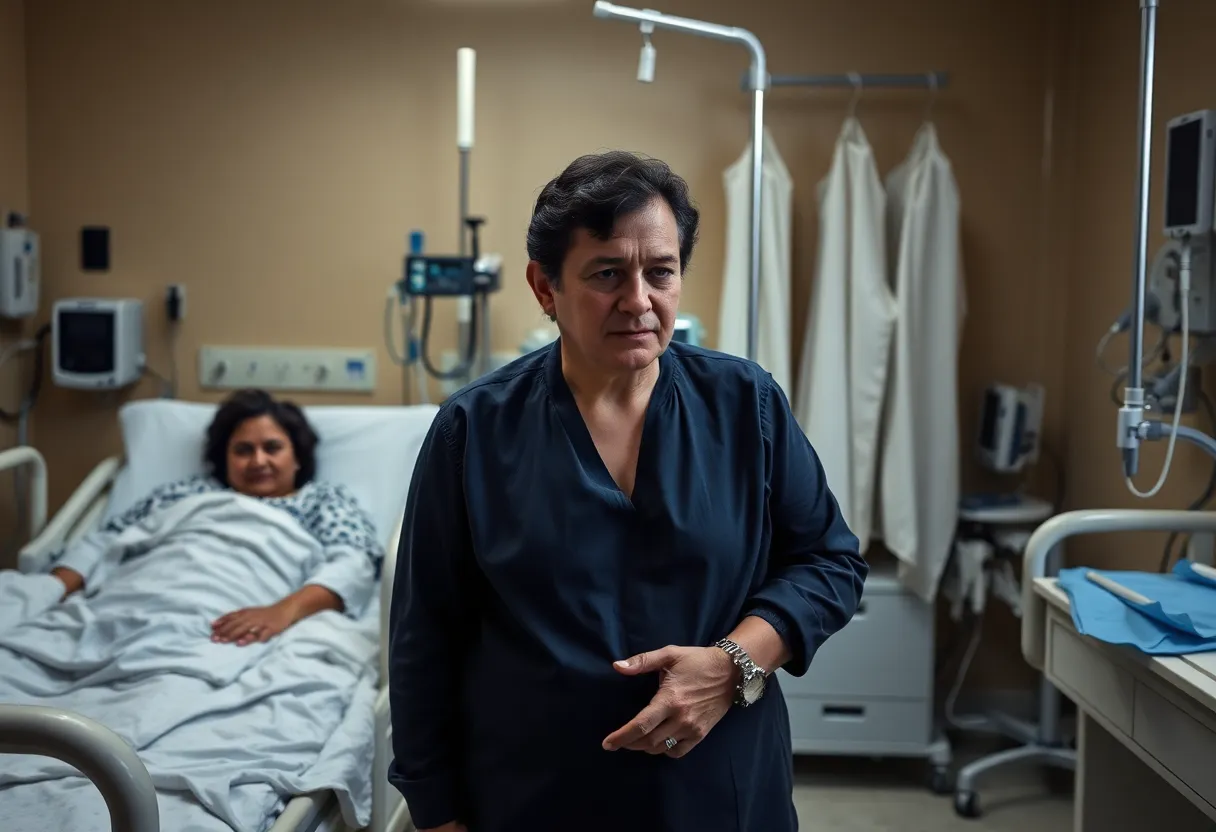News Summary
Adriana Smith, a 30-year-old Georgia woman, has been declared brain dead while pregnant, and her family faces a challenging situation due to restrictive anti-abortion laws. With the state’s heartbeat law preventing them from withdrawing life support, the family grapples with emotional and financial burdens amidst legal restrictions on medical decision-making. Concerns about the health of the unborn child further complicate their predicament, highlighting the implications of such laws on maternal care and family rights.
Atlanta, Georgia – A Georgia woman, Adriana Smith, has been declared brain dead following a medical emergency, with her family facing a dire situation due to the state’s restrictive anti-abortion laws. Smith was 30 years old and approximately 21 weeks pregnant at the time of her declaration on February 19, 2025, after experiencing severe headaches prior to her hospitalization. Her boyfriend discovered her gasping for air a day after she initially sought medical treatment at Northside Hospital, leading to her transfer to Emory University Hospital where she was diagnosed with brain death.
Under Georgia’s “heartbeat law,” which prohibits abortions once cardiac activity is detected—usually around six weeks into pregnancy—Smith’s family has been informed that they cannot legally withdraw her from life support. This law has created a complex and distressing situation for Smith’s family, who wished to make decisions regarding her medical care and the future of the unborn child, which may be facing potential health issues following birth.
The law, which took effect after the 2022 Supreme Court decision that overturned Roe v. Wade, represents one of several stringent abortion regulations implemented in conservative states across the country. As it stands, the family of Smith is grappling with the emotional and financial ramifications of her prolonged life support while navigating the legal landscape shaped by this legislation.
Reports suggest that the fetus may have fluid on the brain, raising significant concerns about possible disabilities and health complications post-delivery. Smith’s immediate family, which includes a five-year-old son, has been making regular visits to her in the hospital, where they are enduring the heartache of an uncertain future for both Smith and her unborn child.
Despite the circumstances, Emory Healthcare has emphasized that it must adhere to legal and medical guidelines in its care decisions, and has refrained from discussing specifics due to privacy protocols. This adherence to the law has led to confusion even among bioethicists, who argue that continued life support is not necessarily a legal mandate in such cases, raising questions about the implications of Georgia’s abortion laws on maternal health care.
The situation has caught the attention of state lawmakers, including State Senator Ed Setzler, who was instrumental in the passage of the heartbeat law. Setzler supports the hospital’s decision to maintain life support, framing it as a necessary measure to prioritize the life of the unborn child. However, advocacy groups such as SisterSong have voiced criticism of the law, arguing that it strips families of their decision-making rights in heart-wrenching circumstances like that of Smith’s situation.
Families like Smith’s are now facing mounting medical costs associated with ongoing care, compounding the emotional strain of their predicament. The intersection of medical ethics, legal restrictions, and family rights continues to prompt discussions about the implications of anti-abortion laws on maternal and child health. The case has sparked significant public discourse, underscoring the broader consequences of legislation affecting reproductive rights and medical decision-making.
As the family navigates this harrowing situation, it is clear that legal frameworks surrounding reproductive health and rights are continuing to evolve, while the personal impact on families facing similar predicaments remains profound.
Deeper Dive: News & Info About This Topic
HERE Resources
Family Raises Concerns Over Healthcare Decisions in Adriana Smith’s Case
Measles Alert in Metro Atlanta: New Cases Confirmed
Additional Resources
- AP News: Pregnant Woman Brain Dead Due to Abortion Ban
- Wikipedia: Abortion in the United States
- NBC News: Family Forced to Keep Brain-Dead Woman Alive
- Google Search: Georgia Abortion Law
- The Guardian: Pregnant Georgia Woman Brain Dead
- Encyclopedia Britannica: Abortion
- Fox5 Atlanta: Brain-Dead Georgia Woman Kept on Life Support
- Google News: Pregnant Woman Brain Dead Georgia

Author: STAFF HERE ATLANTA WRITER
The ATLANTA STAFF WRITER represents the experienced team at HEREAtlanta.com, your go-to source for actionable local news and information in Atlanta, Fulton County, and beyond. Specializing in "news you can use," we cover essential topics like product reviews for personal and business needs, local business directories, politics, real estate trends, neighborhood insights, and state news affecting the area—with deep expertise drawn from years of dedicated reporting and strong community input, including local press releases and business updates. We deliver top reporting on high-value events such as vibrant music festivals like Shaky Knees and Music Midtown, major cultural celebrations including Dragon Con and the Atlanta Film Festival, and iconic sporting events like the Peachtree Road Race. Our coverage extends to key organizations like the Metro Atlanta Chamber of Commerce and the Atlanta Convention & Visitors Bureau, plus leading businesses in logistics, beverages, and retail that power the local economy such as Delta Air Lines, The Coca-Cola Company, and The Home Depot. As part of the broader HERE network, including HEREAugusta.com and HERESavannah.com, we provide comprehensive, credible insights into Georgia's dynamic landscape.





